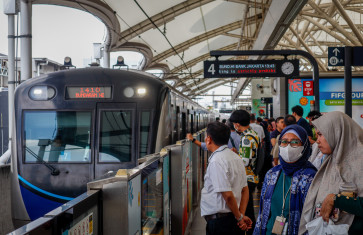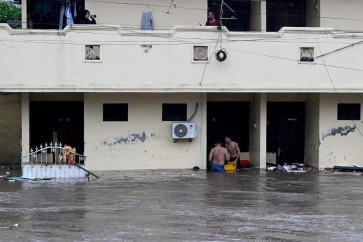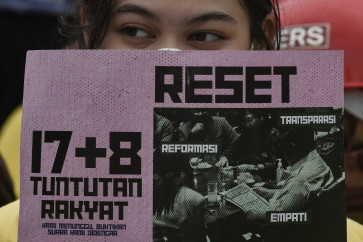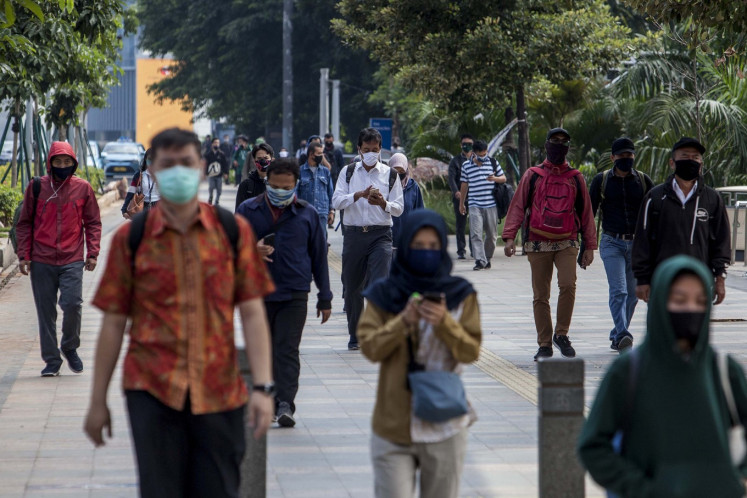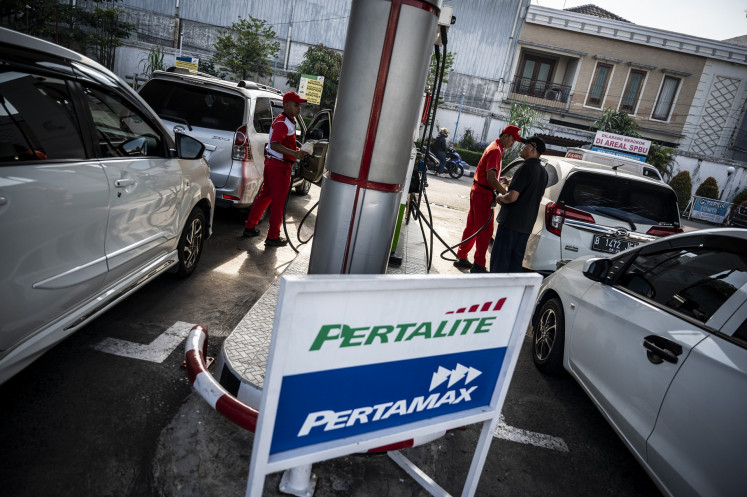Popular Reads
Top Results
Can't find what you're looking for?
View all search resultsPopular Reads
Top Results
Can't find what you're looking for?
View all search resultsReform sought for social aid, subsidies
The government should improve the management of its social assistance programs and subsidies to ensure their sustainability so that they will be able to continue generating fiscal space for disbursing the necessary social benefits, experts have said
Change text size
Gift Premium Articles
to Anyone
T
he government should improve the management of its social assistance programs and subsidies to ensure their sustainability so that they will be able to continue generating fiscal space for disbursing the necessary social benefits, experts have said.
Economic Research Institute for ASEAN and East Asia (ERIA) economist Fauziah Zen said Indonesia had improved the scope of its social assistance protection over the years, ranging from health, education, pensions to subsidies for poor families.
However, there were issues that could affect the sustainability of the programs, such as mistargeted subsidies and quality control, she said, citing the fuel subsidy as an example.
Early this month, the administration of President Joko “Jokowi” Widodo was met with harsh criticism after it canceled a 7 percent raise in the price of low-grade Premium gasoline to Rp 7,000 (50 US cents) per liter, minutes after it was announced.
“Many subsidies that are actually intended for those in the lowest [economic class], are also given to those who do not deserve them,” Fauziah told reporters at a discussion over the weekend. “If we are going to rely on a subsidy system [to alleviate poverty] but are mistargeting it, the subsidy will not be sustainable and efficient.”
Fauziah pointed out that it was indeed never easy for the government to create reasonable subsidy programs, as they would always be linked to the political situation, with the benefits of the assistance being enjoyed mostly by voters.
Such political influences meant that both policymakers and recipients were only concerned with the quantity of social protection and assistance budgets rather than their quality, she added.
“It is hard to separate subsidies from political aspects because they are mostly carried over [from previous political regimes],” Fauziah said.
She added the government would not dare to reduce the amount of subsidies because it was too risky politically. “So we need to watch out if they suddenly add more subsidies instead,” said Fauziah.
Jokowi, who is seeking reelection next April, has increased the total budget allocation for social assistance by 32 percent to Rp 381 trillion in 2019.
Jokowi said in his financial note speech for the 2019 state budget proposal that the main purpose of the increase was to cut the poverty rate to between 8.5 and 9.5 percent from 9.8 percent currently.
Fauziah said the government should also teach the beneficiaries of social protection programs that none of the benefits came for free and that they had to be taught about their responsibilities to “pay back” the benefits.
She pointed out the Rp 4.99 trillion ($335.02 million) government bailout to cover the Rp 10.99 trillion deficit hitting the Healthcare and Social Security Agency (BPJS Kesehatan) this year, saying the deficit should be an opportunity for citizens to realize that their disciplined, routine contributions to the BPJS would help the program out of its predicament.
The overall analysis of Indonesia’s social protection system has been published in a book titled Social Protection Goals in Southeast Asia: Strategies and Methods to Generate Fiscal Space, which ERIA co-launched with publisher Routledge over the weekend.
Speaking at the launch, fiscal economist Mukul G. Asher said the initiatives for broadening and deepening social protection should be an integral part of economic growth and development strategies.
“Social protection has always been thought of as a complimentary part of growth, but now it has changed and it has become part of development growth and strategy,” Asher said. “The government should think about it from the beginning rather than later on.”
Furthermore, he added, the government should seek more feedback and data results from its social assistance programs, as data analytics played an important role in evaluating and improving those programs.


